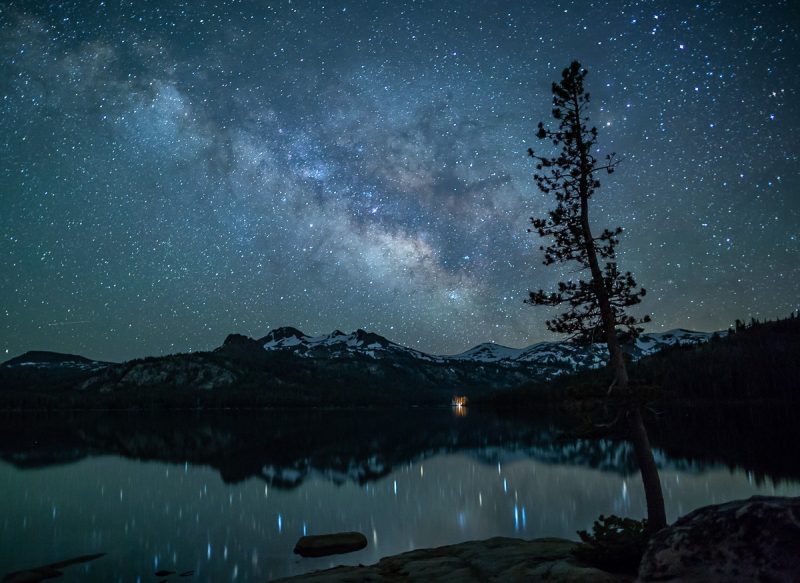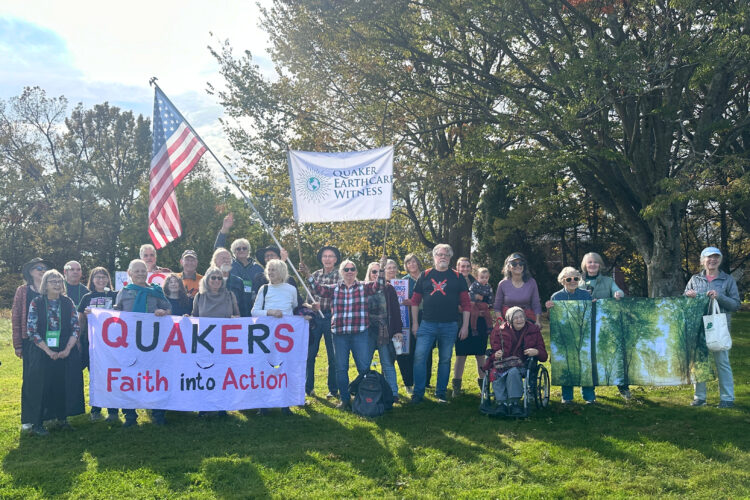For Peace on Earth and Unity with Creation: Recommendations for All Friends

From the QEW Sustainability: Faith and Action Working Group.
Recognizing the urgency of reducing our carbon footprint and living sustainably on the earth, QEW’s Sustainability: Faith and Action working group will be reaching out to all monthly and yearly meetings this year with resources and encouragement to take action in four specific areas. The committee will be sharing resources and making this request directly with meetings, and will be offering resources and an opportunity to share with our network via the QEW website.
We are asking meetings to consider the following, for action starting this year (this is a working document, and is subject to change; we expect to finalize this soon and distribute this as an epistle):
1. We ask that all yearly and monthly meetings address the moral dimension of investments in fossil fuels and consider reinvestment options that your meetings value. The call for divestment includes freezing any new investments in top 200 fossil fuel companies with the largest reserves and committing to shift any current fossil fuel investments over the next five years to investments which better reflect Friends testimonies. As many meetings do not hold investments, consider crafting a minute in support of divestment. Visit http://www.quakerearthcare.org/node/530 to read an example of a statement on divestment from the Eco-Justice Working Group of Philadelphia Yearly Meeting. Conversations on how individuals can divest may be sparked by these actions as well.
2. We ask that all Friends’ Houses of Worship (meeting houses) surrounded by grass begin their ministry to beneficial insects by planting a patch of native pollinator plants, followed by a gradual transition to edible plantings. QEW will provide instructions and resources on their website. Visit the Xerces Society for information on native habitats in your region: http://www.xerces.org/pollinator-resource-center/. Also visit http://pollinator.org/guides.htm and type in your ZIP code to access an excellent, detailed booklet for your specific bioregion written by Pollinator Partnership. If you are interested in pollinator gardens, here is another helpful resource: http://www.blankparkzoo.com/en/conservation/plant_grow_fly/.
3. We ask that all Friends’ Houses of Worship (which are able in their locality) shift from non-renewable to renewable electricity suppliers by 2016. That we may serve as models and examples, showing our willingness to welcome the transition to a low-carbon world. All Friends are encouraged to do the same. Your local power company may offer the ability to buy energy from renewable sources. This is also possible through Renewable Energy Certificates (RECs). To learn more, visit the Green-e web site: http://www.green-e.org/getcert_re.shtml.
4. Given that the United States is one of largest carbon polluters, that the EPA has proposed a commonsense plan to cut carbon pollution from power plants, and that each state will be required to craft their own plan to meet the new emissions standards, we call on meetings to develop a plan of action to encourage their state to hold the highest possible standard to address the risks of climate change, protect our health and environment now and for future generations. Visit http://thesolutionsproject.org/ and scroll down to click on the image of your state to find a realistic 100 percent renewable energy plan designed by researchers at Stanford University.
We urge meetings to do the following:
• Identify their state’s current climate change plan. Visit http://www.epa.gov/statelocalclimate/state/state-examples/action-plans.html to see Climate Change Action Plans state-by-state.
• Compare it to the 100 percent renewable plan proposed by the Solutions Project.
• Identify and reach out to other faith and community partners.
• Create the space for dialogue and negotiation with policymakers.
• Prepare a minute of support for the state plan which reflects the urgent need to lower carbon pollution. To see the Minute written by Strawberry Creek Monthly Meeting in California, visit http://www.quakerearthcare.org/article/strawberry-creek-monthly-meeting-minute-climate-change-and-divestment.
• Discern what form of witness will most effectively make visible our deep commitment to protecting the commonwealth of life now and in the future.

